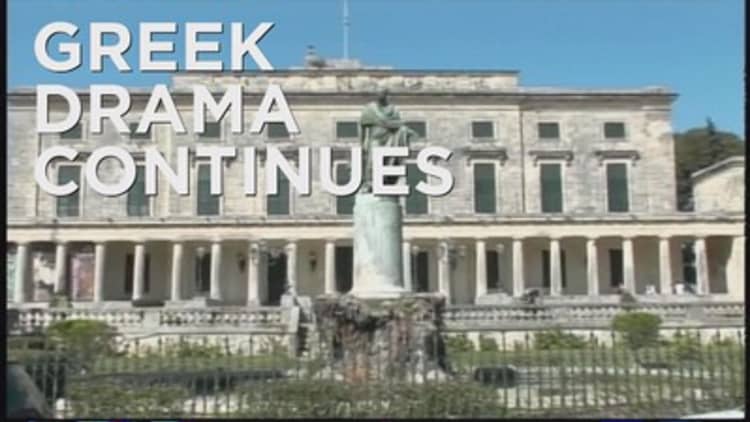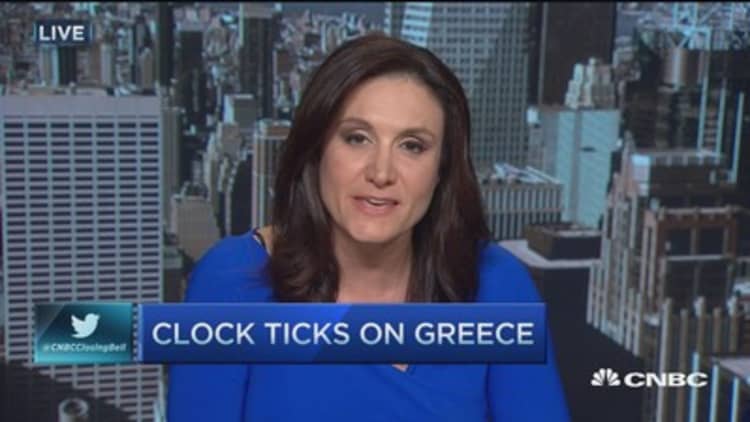
New comments by Greece's Prime Minister have highlighted the stark differences between his opinions and those of some officials in charge of the country's economic aid.
In an article for France's Le Monde newspaper, published Monday, Alexis Tsipras lambasted the "absurd proposals" of its international lenders and issued a stark warning of a future euro bloc that resembled a "technocratic monstrosity."
"The issue of Greece does not only concern Greece; rather, it is the very epicenter of conflict between two diametrically opposing strategies concerning the future of European unification," he wrote in the comment piece, which was published online on Sunday.
The comments from the Greek leader underline his belief that the country should be given more leeway as it continues to battle an economy in recession following the sovereign debt crisis of 2011.
"Tsipras' words very much reflect just how deep the divide is (remains) in terms of the level of expectations between Greece and its creditors and indeed very much highlights the harsh reality facing both parties," a rates strategy team at Rabobank said in a morning note on Monday.
While Deutsche Bank's Jim Reid added that his words were a "defiant stance" against Greece's creditors.
"All outcome paths still remain open in what's still a critical week... Expect headlines to only intensify as we move towards Friday," Reid wrote in a note on Monday.
'Extreme neoliberalism'

In the article, Tsipras outlined two paths that the monetary union in Europe could follow. The more destructive path, he explained, was that of tough austerity, with a "core" Europe - including countries like Germany - setting rules for those countries that refused to bow to the new authority.
Powerful European figures could even reject the budgets of sovereign states that were not aligned with the doctrines of "extreme neoliberalism," he warned. More restrictions on the movement of capital, disciplinary sanctions, fines and even a parallel currency could be implemented on struggling euro zone nations, according to Tsipras.
"This strategy not only risks the beginning of the end for the European unification project by shifting the euro zone from a monetary union to an exchange rate zone, but it also triggers economic and political uncertainty, which is likely to entirely transform the economic and political balances throughout the West," he said in the article.
Instead, Tsipras advocated keeping democracy intact alongside more equality and solidarity.
Talks between the Greek government and those overseeing its bailout -- the International Monetary Fund (IMF), European Central Bank (ECB) and the Commission -- have been sporadic but ongoing since the so-called troika extended Greece's bailout program by four months in February.
'Rupture and division'
Greece has been slow to reform in that time, however, and has argued with lenders over measures including changes to the labor market and pension cuts. Yet the country is running out of money and Greece is due to make a large repayment to the IMF on June 5.
But Tsipras quashed claims that Greece was not cooperating in order to reach an agreement with its creditors, and a significant part of the Le Monde article was dedicated to highlighting Greece's current reform proposals.
In a parting warning shot for European officials, Tsipras urged readers to revisit Ernest Hemingway's 1940 novel "For Whom the Bell Tolls," saying the continent was currently at a crossroad.
"Which strategy will prevail? The one that calls for a Europe of solidarity, equality and democracy, or the one that calls for rupture and division?," he said.
"If some, however, think or want to believe that this decision concerns only Greece, they are making a grave mistake."
—CNBC's Holly Ellyatt contributed to this article.


